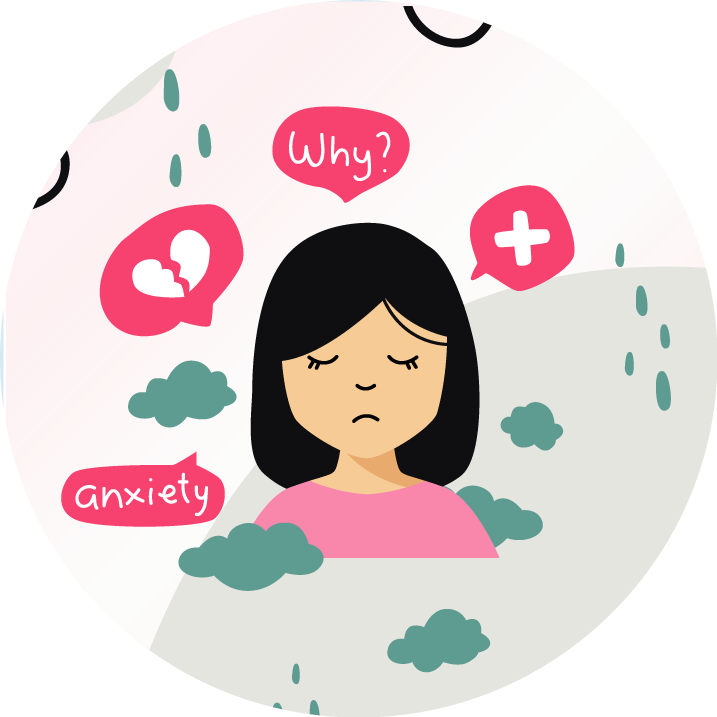Overcome Fear of Engulfment and Reclaim Your Sense of Self

Overcome Fear of Engulfment and Reclaim Your Sense of Self
September 13 2025 TalktoAngel 0 comments 78 Views
Humans are naturally wired for social connection, often yearning for love, companionship, and emotional closeness. However, for some, closeness in relationships can trigger overwhelming anxiety rather than comfort. This frequently originates from a deeply ingrained psychological issue referred to as the fear of engulfment. Individuals struggling with this fear worry about losing their personal identity, autonomy, or emotional boundaries when they become emotionally close to someone. This fear can disrupt relationships, hinder personal growth, and create emotional isolation.
Understanding and overcoming the fear of engulfment is crucial for building healthy, authentic relationships and rediscovering your sense of self. This blog explores the causes, signs, and practical strategies to help you heal and thrive.
What Is Fear of Engulfment?
Fear of engulfment is a psychological defense mechanism where a person is afraid of being consumed or controlled by others in close relationships. This fear often emerges from childhood experiences—especially when a parent or caregiver was overly intrusive, controlling, or emotionally enmeshed. Individuals may feel emotionally suffocated or fear losing their independence, leading them to push others away or avoid deep intimacy altogether.
While fear of engulfment is often associated with borderline personality disorder (BPD) or trauma, it can affect anyone who has experienced emotional overreach or boundary violations in the past.
Common Signs of Fear of Engulfment
People struggling with this fear may:
- Feel anxious or trapped in intimate relationship
- Avoid commitment or emotional vulnerability
- Struggle with setting or maintaining healthy boundaries
- Experience guilt or resentment when asserting independence
- Pull away when relationships become too emotionally intense
- Sabotage close connections out of fear of losing control
These patterns are not conscious choices but rather protective mechanisms developed over time to prevent emotional harm. Unfortunately, they often lead to the very loneliness and disconnection the person wishes to avoid.
Causes and Root Issues
- Childhood Experiences:-Children raised by overbearing, emotionally dependent, or controlling caregivers may grow up without a clear sense of personal boundaries. When a parent relies on their child to fulfill their own emotional needs, the child often comes to associate emotional closeness with a loss of personal boundaries and intrusion. This dynamic teaches the child to fear intimacy and associate love with loss of self.
- Trauma and Abuse: People who have experienced emotional, physical, or psychological abuse may develop a fear of engulfment as a form of self-protection. They may associate emotional closeness with vulnerability, control, or danger, reinforcing avoidance behaviors in adulthood.
- Enmeshment in Families:-In enmeshed families, personal boundaries are blurred. Individual emotions, decisions, and identities are not respected, creating an environment where personal autonomy feels unsafe or unattainable.
Steps to Overcome Fear of Engulfment
Overcoming this fear requires introspection, emotional healing, and intentional boundary-setting. Here are practical strategies to begin the journey:
1.Cultivate Self-Awareness
Recognizing your behavioral patterns is the initial and essential step toward healing. Journaling, mindfulness practices, or guided reflection can help you explore how your fear manifests in relationships. Ask yourself:
- Do I feel threatened by closeness?
- Do I fear losing control or identity in relationships?
- When did I first start feeling this way?
Understanding the origin of your fear helps you move forward with clarity and compassion.
2.Learn to Set Healthy Boundaries
Boundaries are not walls—they’re doors with locks. They allow connection while protecting your emotional space. Begin practicing assertiveness by saying "no" when needed, expressing your needs clearly, and being consistent with your limits. Healthy boundaries reinforce your sense of identity and reduce the fear of being overtaken emotionally.
3.Practice Gradual Vulnerability
It’s okay to take your time with intimacy. Allow yourself to slowly open up in relationships rather than jumping into emotional closeness all at once. Share small parts of yourself, and observe how your boundaries are respected. Trust is built over time and doesn't require complete emotional exposure immediately.
4.Reconnect with Your Individual Identity
Sometimes fear of engulfment stems from not knowing who you are outside of relationships. Engage in activities that reinforce your individuality—pursue hobbies, develop personal goals, and nurture friendships. Having a strong sense of self allows you to enter relationships without the fear of being consumed.
5.Seek Professional Support
Therapy can be incredibly beneficial for uncovering deep-rooted fears and reworking attachment patterns. Therapists, especially those trained in attachment theory, trauma recovery, or dialectical behavior therapy (DBT), can guide you through the healing process. Online platforms like TalktoAngel offer accessible therapy options for those looking to begin this journey in a safe and supportive space.
Reclaiming Your Sense of Self
Overcoming the fear of engulfment isn’t about avoiding relationships; it's about engaging in them in healthier, more balanced ways. It involves discovering empowerment through both emotional intimacy and a strong sense of individuality. As you grow more comfortable with your boundaries and identity, relationships can become sources of joy rather than anxiety. Remember, you are allowed to be close to others without losing yourself. Reclaiming your sense of self doesn’t mean being alone—it means standing strong in who you are, even in the company of those you love.
Conclusion
Fear of engulfment may have once served as a necessary shield, but it no longer needs to dictate your relationships. Through self-awareness, boundary-setting, and therapeutic support, you can release old fears and embrace emotional intimacy without sacrificing your individuality. The journey may be gradual, but with each step, you move closer to a life defined by both connection and self- impowerment.
Contributed by: Dr (Prof.) R K Suri, Clinical Psychologist & Life Coach, & Ms. Tanu Sangwan, Counselling Psychologist
References
- Johnson, S. M. (2008). Hold Me Tight: Seven Conversations for a Lifetime of Love. Little, Brown Spark.
- Levine, A., & Heller, R. (2010). Attached: The New Science of Adult Attachment and How It Can Help You Find – and Keep – Love. TarcherPerigee.
- Firestone, L. (2013). Overcome Your Fear of Intimacy. Psychology Today. Retrieved from https://www.psychologytoday.com/us/blog/the-human-experience/201308/overcome-your-fear-intimacy
- TalktoAngel. (2024). Therapy for Fear of Intimacy and Relationship Issues. Retrieved from https://www.talktoangel.com
Leave a Comment:
Related Post
Categories
Related Quote

“Remember: the time you feel lonely is the time you most need to be by yourself. Life's cruelest irony.” - Douglas Coupland

“Anxiety is a thin stream of fear trickling through the mind. If encouraged, it cuts a channel into which all other thoughts are drained.” - Arthur Somers Roche

“Stress is an ignorant state. It believes that everything is an emergency. Nothing is that important.” - Natalie Goldberg

“My anxiety doesn't come from thinking about the future but from wanting to control it.” - Hugh Prather

"Stay away from people who make you feel like you are wasting their time." - Paulo Coelho
Best Therapists In India































SHARE